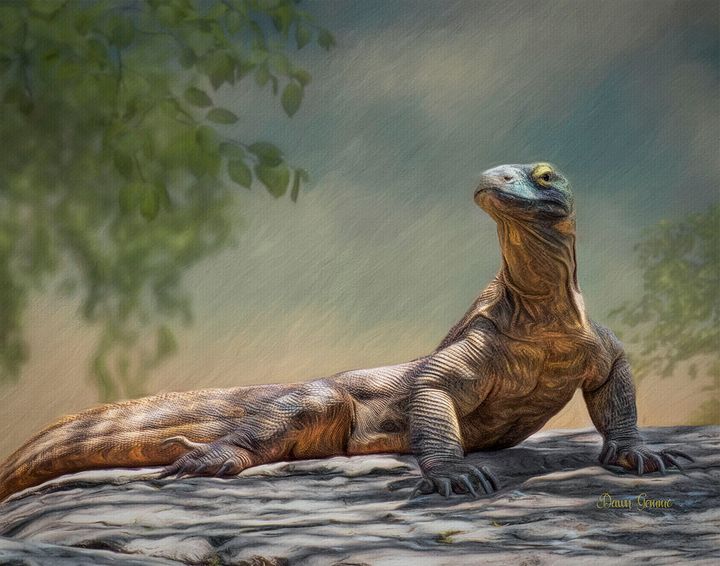Difference between revisions of "Komodo Lizard"
Tao alexis (talk | contribs) |
Tao alexis (talk | contribs) |
||
| (3 intermediate revisions by the same user not shown) | |||
| Line 1: | Line 1: | ||
{{Bestiarychart | {{Bestiarychart | ||
| name = Komodo Lizard | | name = Komodo Lizard | ||
| − | | species = [[ | + | | species = [[Reptile|lizard]] |
| noapp = 1–2 | | noapp = 1–2 | ||
| behaviour = presocial | | behaviour = presocial | ||
| Line 22: | Line 22: | ||
Myth has it that the Komodo dragon is able to give birth through parthenogenesis, or without the need to mate. The legend has evolved from incidents in which a single dragon was able to reach a small, isolated island; and how, within a few years, the island became overrun with dragons. | Myth has it that the Komodo dragon is able to give birth through parthenogenesis, or without the need to mate. The legend has evolved from incidents in which a single dragon was able to reach a small, isolated island; and how, within a few years, the island became overrun with dragons. | ||
| − | The poisonous '''venom''' of these animals has no immediate effect; but is an anti-coagulant. Any creature bitten by the Komodo must make a [[Saving Throws|saving throw]] against poison. If this fails, the venom will thin the victim's blood for a week, so that any [[ | + | The poisonous '''venom''' of these animals has no immediate effect; but is an anti-coagulant. Any creature bitten by the Komodo must make a [[Saving Throws|saving throw]] against poison. If this fails, the venom will thin the victim's blood for a week, so that any [[Wound|wounds]] that are sustained will bleed double the normal number of [[Hit Points|hit points]] each round. This effect can be cured by [[Neutralise Poison (spell)|neutralise poison]]. |
See Also,<br> | See Also,<br> | ||
| − | [[Amphibians & Reptiles (sage study]]<br> | + | [[Amphibians & Reptiles (sage study)]]<br> |
[[Bestiary]] | [[Bestiary]] | ||
| + | |||
| + | [[Category: Brave Intelligence]] | ||
Latest revision as of 15:53, 12 March 2025
| Species | lizard |
| No. Appearing | 1–2 |
| Behaviour | presocial |
| Range | jungle |
| Size | 9 ft. long |
| Weight | 140 lbs. |
| Intelligence | 2 |
| Armour Class | 6 |
| Hit Dice | 3 |
| Action Points | 5 |
| Max. Stride | {{{stride}}} |
| THAC0 | 19 |
| Hp/Die | d6 |
| Attack Forms | bite |
| Damage | 1–8 |
| Special Attacks | venom |
Also called the Komodo dragon, this is a species of lizard found in the East Indies, southern India and the east coast of Africa. They hunt and ambush their prey, which are usually small mammals or birds, but incidents with humanoids do occur, particularly with children. Even seemingly docile dragons can be unpredictably aggressive, especially when the animal's territory is invaded.
Myth has it that the Komodo dragon is able to give birth through parthenogenesis, or without the need to mate. The legend has evolved from incidents in which a single dragon was able to reach a small, isolated island; and how, within a few years, the island became overrun with dragons.
The poisonous venom of these animals has no immediate effect; but is an anti-coagulant. Any creature bitten by the Komodo must make a saving throw against poison. If this fails, the venom will thin the victim's blood for a week, so that any wounds that are sustained will bleed double the normal number of hit points each round. This effect can be cured by neutralise poison.
See Also,
Amphibians & Reptiles (sage study)
Bestiary
